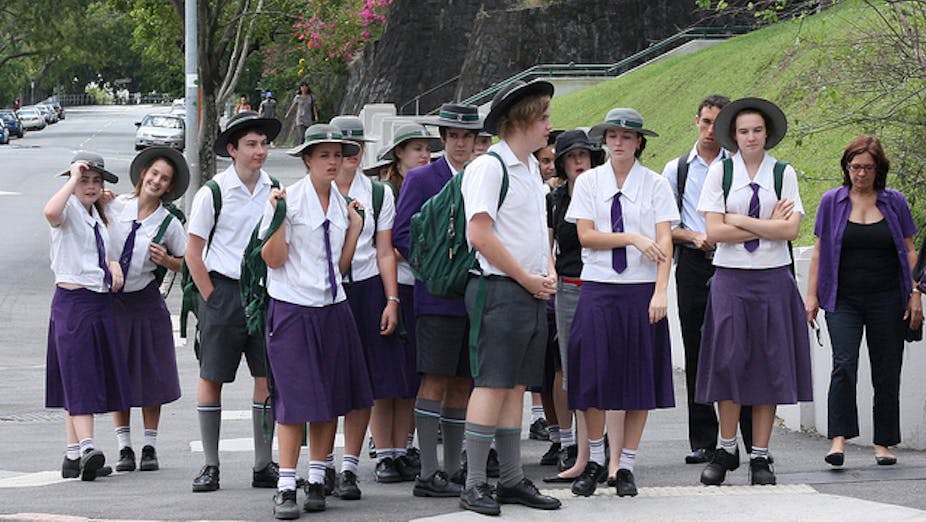The recent proposal for wealthier families to pay higher fees for public schooling is unworkable and counter-productive on a number of levels.
It’s not generally known that the fees levied and collected by public schools already vary widely according to socio-economic status. Public schools in more affluent areas set fees and have a range of various “voluntary” contributions and costs associated with elective subjects and activities. This can total $2000 a year or more, despite the fact that public schooling is notionally “free”. Schools in poorer areas typically have much lower fees of $100-200 and a much lower rate of fees collected from parents.
Thus there is already a certain amount of inequity within public education – as well as between public and private education. The latest proposal would exacerbate this.
More generally, this proposal is another step along the road to “user pays” in schooling, with those who can pay more receiving a better-resourced service. Instead of public education being an investment in national personal, social and economic prosperity, it is increasingly being seen as an industry that requires deregulation and exposure to market forces. This will enable governments to further abrogate their responsibility to adequately resource public schools.
Many parents have been convinced that public education has failed and that the interests of their children might best be served by opting out. Adding a new layer of fees to public schooling will be enough to trigger this decision for some. There is a danger that public schools, especially those in lower socio-economic areas, will be left to implode and crumble while parents with the means to place their children in better-resourced public and private schools will do so.
Finally, there is no mention as to how these higher fees for “wealthier” public school parents will be either set or collected. Will this be a job for the tax office? Will fees be based on taxable income for the previous financial year? Will fees be collected through regular income tax deductions? What of the self-employed or families with more than one income? This could become a costly bureaucratic nightmare to implement.
Since European settlement Australia has been built on the foundation of free, secular, compulsory and universally available public education. An equitably funded public education system is better for everyone. Where possible a choice of schools should be available to parents but this choice should not be based on either the relative affluence of a school or on the ability of parents to pay for such schooling.
Australia is becoming a less equitable society, and the Gonski Review of Funding for Schooling was the latest and most comprehensive attempt to grapple with the issue. Previous schemes have been bedevilled by the political imperative that no matter what the model, no school or system would be worse off under the new arrangements. This entrenches rather than remedies inequity.
In a speech this month David Gonski will reflect on the findings of the review and on the prospects for a more equitable and productive means of funding Australian education. Australians need to consider this review and the broader issues it addressed. We need a plan to sustain and nurture public and private education rather than half-baked measures.
Australia might be able to exist without a car industry but it can’t survive and prosper without an adequately resourced and supported public education sector.

